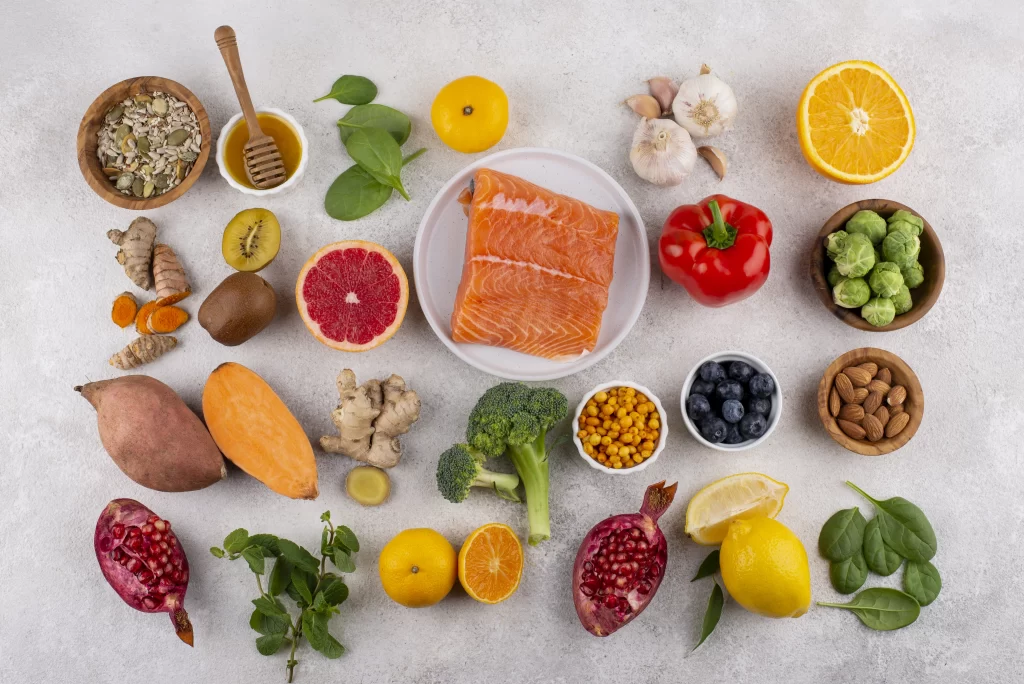When we’re recovering from injuries or problems with our muscles, we tend to only think about the physical side of therapy. But it’s important to know that good nutrition plays an equally important part in this process. Food gives our bodies the building blocks they need to heal damaged tissues, boost muscle growth, and speed up recovery in general.
Find out about important nutrients, dietary tips, and meal plans that can help you recover faster and better in this piece that delves into the complex relationship between good nutrition and muscle rehabilitation.
The Importance of Good Nutrition in Muscle Recovery
Recovery of muscles is a complicated process that needs a proper intake of important nutrients. For example, proteins are very important for fixing muscle fibers that have been damaged by strain, injury, or a lot of hard physical exercise. Some great foods to add to your diet are chicken, fish, eggs, and plant-based sources like beans and tofu that are high in lean proteins. Adding these protein sources to your meals will help rebuild and strengthen your muscles, which will speed up the healing process.
Carbohydrates are also important for replenishing glycogen stores, which give muscles the energy they need to heal and fix themselves. Choose complex carbs like whole grains, fruits, and veggies because they give you energy slowly over time and help keep your blood sugar levels steady. By adding these to your diet, you make sure your body has the food it needs to help muscles recover.
Don’t forget how important healthy fats are; they’re needed to lower inflammation and improve the health of all tissues. Avocados, nuts, seeds, and fatty fish are all good sources of healthy fats that can help ease muscle pain and speed up the healing process.
If you are suffering from a sports injury, muscle strain or tear, do get in touch for a appropriate therapy that can be followed from the comforts of your home.
Follow to more about sports rehabilitation.
Important Nutrients for Muscle Recovery
Omega 3 Fatty Acids: Fish high in fat, such as salmon, mackerel, and sardines, are rich sources of omega-3 fatty acids, which have anti-inflammatory properties.
Vitamin D: Also called the “sunshine vitamin,” helps the body absorb calcium, which is good for bones and muscles. Vitamin D levels can be raised by being in the sun and eating foods like eggs, mushrooms, and dairy products that have been enhanced.
Antioxidants: Antioxidants can be found in many fruits and veggies and help fight oxidative stress, which can slow muscle recovery. Antioxidants help the body heal, and blueberries, strawberries, spinach, and kale are all great places to get them.

Planning meals to help muscles recover faster
A well-rounded meal plan with a balance of all important food groups is a good way to make sure you’re getting all the nutrients your muscles need to recover.
You can use this example of a meal plan as a guide:
Breakfast: A spinach and mushroom omelette with whole-grain toast and fresh fruit is the perfect way to start the day because it has a good mix of protein, healthy fats, and complex carbs.
Mid-morning Snack: Greek yogurt with a handful of nuts and berries is a healthy snack that is high in protein, healthy fats, and vitamins, which help muscles heal and reduce inflammation.
Lunch: A grilled chicken or tofu salad with mixed veggies, avocado, and quinoa is a healthy meal that is full of healthy fats, lean proteins, and complex carbs that will keep you going all day.
Afternoon Snack: A smoothie made with kale, banana, and a scoop of protein powder is a healthy, refreshing snack that helps muscles heal and grow.
Dinner: Baked salmon with roasted veggies and sweet potatoes is a healthy dinner choice that is high in omega-3 fatty acids, antioxidants, and complex carbohydrates, which help muscles repair and recover overnight.
Staying hydrated and working out muscles
Along with good nutrition, staying hydrated is also very important for helping muscles heal. Water is very important for keeping muscles and the body working properly. Dehydration can make it harder for the body to heal and grow back damaged muscle tissue, which can make healing times longer. Aim to drink at least 8–10 cups of water every day. This amount can change depending on how active you are and the weather.
Using dietary supplements in a smart way
Although getting nutrients from whole foods should be the main goal, taking dietary supplements can be helpful, especially when it’s hard to meet certain nutritional needs through food alone. Talking to a doctor or trained dietitian can help you figure out if adding vitamins, minerals, or protein powders to your diet is necessary for your specific recovery needs.
You can repair and rebuild your muscles best when you eat a healthy, well-balanced diet. You can make it much easier for your body to heal and rebuild muscles by learning about the roles of different nutrients, planning your meals to include foods from all the food groups, drinking enough water, and thinking about using dietary supplements when needed. Keep in mind that a complete plan that includes good nutrition and focused physiotherapy can help you get better more quickly and easily.


